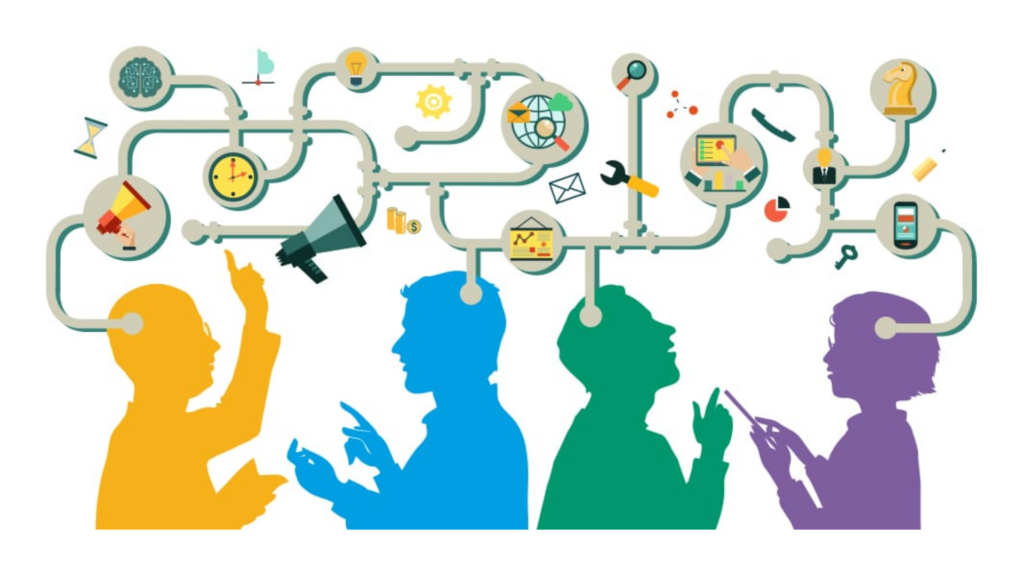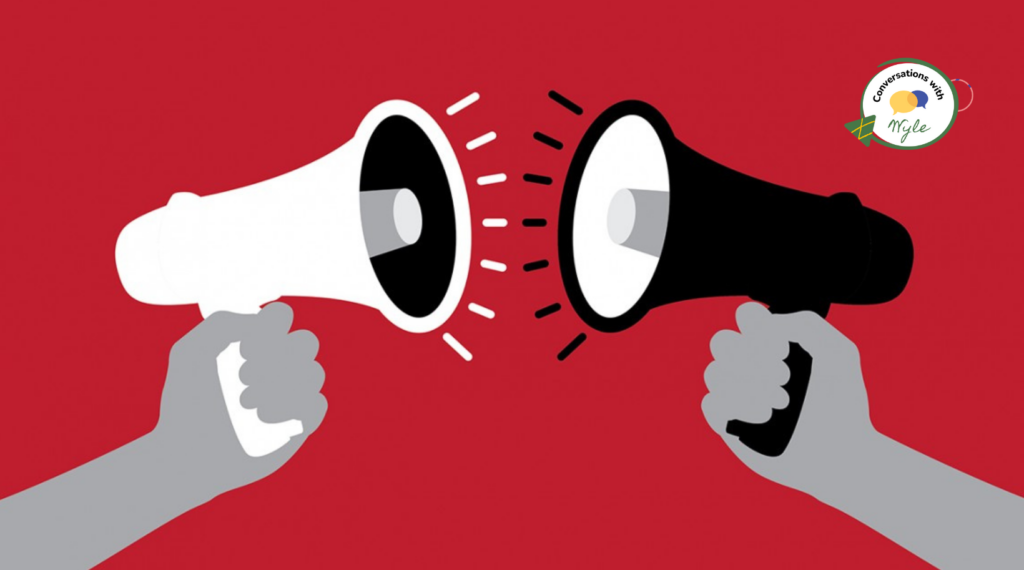Tough times reveal what kind of culture we really have. Here’s how to build trust—not tension.
We’re living in an age where politics, identity, and global events are part of everyday life—and yes, that includes the workplace. From elections to social movements, your team isn’t just bringing their skillsets to work—they’re bringing their whole selves, too. Their fears, their identities, their lived experiences.
Whether it’s a ballot box or a boardroom, moments like this remind us that differences are inevitable. But division doesn’t have to be. In workplaces especially, how we engage across those differences can either build trust—or break it.
And here’s the truth: trying to avoid hard conversations doesn’t keep workplaces safe. It just keeps them silent. These moments of tension? They’re also moments of possibility.
As our CEO puts it:
“Real leaders show up for their teams when it matters most. Politically charged moments can feel risky—but they’re also powerful opportunities to step up, foster dialogue, and turn tension into learning and growth.”
Wyle Baoween, CEO, Inclusivity
So how can leaders and teams rise to the moment without falling into fear or conflict? Here are four ways to navigate differences and build inclusion during times of potential division.
-
Create Space for Dialogue
When tensions run high—whether it’s due to a heated election cycle, a tragic news event, or broader societal shifts—it might feel easier to avoid controversial topics altogether at work. Many organizations default to silence, hoping that if political or social issues aren’t addressed, they won’t cause conflict. But silence can send a message too: that employees’ identities, experiences, and pain don’t matter.
Instead, create intentional spaces where people can speak—and listen—with respect. This doesn’t mean everyone has to agree. It means cultivating a culture where disagreement can happen without harm.
Creating space for accountable dialogue means acknowledging that difficult conversations will happen—and preparing your team to engage with honesty, empathy, and mutual respect. These conversations can be uncomfortable, but they are also essential to inclusion. When done well, they deepen trust, reduce polarization, and affirm that your workplace is a place where people are seen and supported, even in complex moments.
-
Replace Cancel Culture with Curiosity and Compassion
The term cancel culture has become a flashpoint in social discourse—often weaponized or misunderstood. At its core, cancel culture refers to the public shaming or ostracizing of individuals, usually in response to perceived harmful actions or statements. In the workplace, this dynamic can play out in subtle but damaging ways: colleagues being excluded after a misstep, fear of speaking up due to potential backlash, or an overemphasis on punishment rather than growth.
While accountability is essential, cancel culture can undermine psychological safety—especially in diverse teams where people are navigating sensitive issues around race, gender, identity, or politics. Fear of being “canceled” often results in silence, defensiveness, or performative behavior, none of which supports meaningful change or true inclusion.
Instead, workplaces can model a more constructive response: approaching harm with curiosity and compassion, while still holding people accountable. This doesn’t mean excusing harmful behavior—it means creating space for learning, healing, and repair.
-
Support Well-Being During Crisis and Uncertainty
In politically and socially volatile times, employees are not just managing deadlines and deliverables—they’re also processing fear, grief, identity-based harm, and uncertainty. For many, especially those from marginalized or targeted communities, these events are not abstract or distant. They’re personal. And when organizations fail to acknowledge or respond to that reality, it can deepen distrust, burnout, and disengagement.
A trauma-informed, intersectional approach helps meet people where they are. That means recognizing how different identities (such as race, gender, religion, immigration status, and disability.) shape people’s experiences of crisis, and offering layered, flexible support that meets those varied needs.
-
Recognize the Importance of Self Care
Being a bridge builder—especially for those from marginalized identities—can be emotionally exhausting. Without systems of care and sustainability, even the most passionate inclusion advocates can burn out.
Self-care isn’t selfish or superficial—it’s a vital leadership skill. For organizations that want to keep the work going in a meaningful way, building a culture that prioritizes rest, reflection, and renewal is essential.
Inclusion is a daily practice—especially when it’s hard.
We believe inclusion isn’t something you practice only when it’s easy. It’s a commitment that shows up in how we listen, how we support each other, and how we navigate hard conversations with care.
Politically charged moments aren’t just tests of culture—they’re opportunities to show who you are and what you stand for. As teammates, managers, and leaders, let’s meet the moment. Let’s stay human, stay curious, and keep showing up for one another.
Learn More. Read our full guide: “4 Ways to Navigate Differences and Foster Inclusion in Politically Charged Times“
This article is based on the webinar “Navigating Differences in Politically Charged Times” hosted by Inclusivity in July 2025. For more information, please contact [email protected].






















